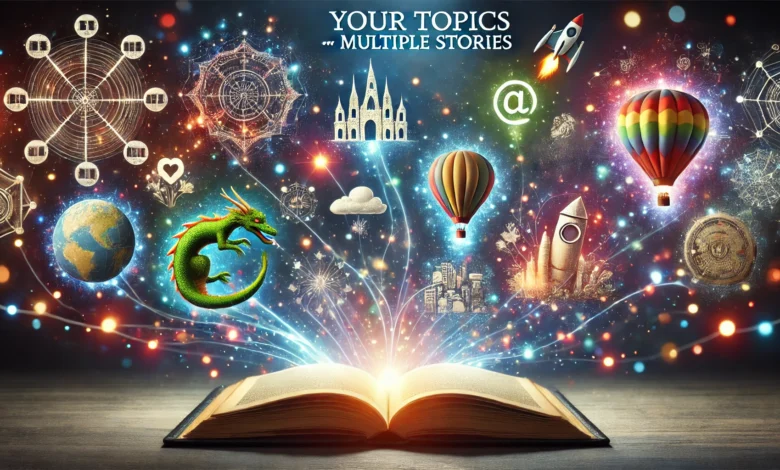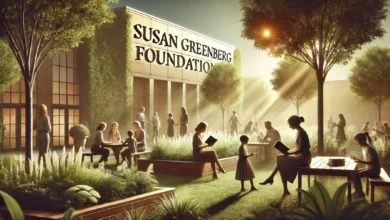Your Topics | Multiple Stories: Dive into Fascinating Narratives

In the information age, stories uniquely connect us to the past and the future. From ancient oral traditions passed down through generations to modern digital platforms, stories have been a fundamental part of human culture. “Your Topics | Multiple Stories” explores the power of diverse narratives, how they shape our understanding of the world, and how we can dive into various stories to broaden our perspectives. Whether you’re a casual reader, an aspiring writer, or someone who loves a good tale, this article will take you through fascinating narratives that span genres, cultures, and mediums.
The Power of Stories
Stories are more than just entertainment—they are tools of communication, preservation, and transformation. For centuries, societies have relied on stories to pass down knowledge, preserve history, and teach moral values. Through storytelling, people can process complex emotions, share personal experiences, and even make sense of difficult situations.
Storytelling is an essential aspect of human experience. It allows us to explore different points of view, experience emotions vicariously, and create meaning in our lives. Narratives can also shape our identities as we connect with characters and plotlines that reflect our values, struggles, and triumphs.
Why Multiple Stories Matter
In our world, the importance of embracing multiple stories cannot be overstated. With globalization and technological advancements, our exposure to various cultures, traditions, and perspectives has expanded significantly. By diving into multiple stories, we begin to realize that there isn’t a single truth or universal experience—there are a multitude of truths, each shaped by personal and cultural context.
By embracing diversity in storytelling, we gain a deeper understanding of different worldviews, uncover forgotten histories, and discover new ways of thinking. This multi-dimensional approach to storytelling enriches our lives, challenges stereotypes, fosters empathy and builds bridges across divides.
Types of Fascinating Narratives to Explore
The beauty of “multiple stories” lies in the variety of existing genres and formats. Each type of narrative brings something unique, whether it’s an emotional connection, intellectual stimulation, or simply pure entertainment. Let’s take a look at some of the fascinating stories that you can explore:
Historical Stories
History is full of compelling and often overlooked stories that provide invaluable insights into how we got to where we are today. From the fall of ancient civilizations to the personal tales of great leaders, historical stories connect us to the past in ways that textbooks cannot.
Example: The story of Mahatma Gandhi’s journey to independence—not only a tale of political strategy but a profound exploration of non-violence, sacrifice, and resilience.
Personal Stories and Memoirs
Personal stories and memoirs offer readers a unique opportunity to connect with individuals intimately. These narratives often provide a raw and honest look at someone’s life, challenges, triumphs, and lessons learned.
Example: Anne Frank’s diary, which provides a haunting and personal account of life during the Holocaust, remains one of the most moving stories of courage and resilience.
Mythology and Folklore
Every culture has its collection of myths, legends, and folktales that have been passed down through generations. These stories often explain natural phenomena, teach moral lessons, or celebrate the achievements of heroes and deities.
Example: Greek mythology, with characters like Zeus, Hera, and Achilles, is filled with fascinating tales that reflect the values, beliefs, and struggles of ancient societies.
Fictional Stories
Fiction is a realm where authors can create worlds from scratch, filled with imaginative plots, complex characters, and intriguing settings. From fantasy to science fiction to contemporary fiction, fictional storytelling offers endless possibilities.
Example: The Harry Potter series by J.K. Rowling, which has captivated millions with its magical world, themes of friendship, and complex moral dilemmas, is a perfect example of how fictional stories can provide entertainment and life lessons.
Documentaries and Non-fiction Stories
Documentaries and non-fiction works often feature real-life events, figures, or phenomena. These stories delve deep into real-world issues, offering factual insights and sometimes unearthing hidden or little-known narratives.
Example: The documentary 13th explores the history of racial inequality in the United States and its connection to the criminal justice system. It provides a powerful story that educates and inspires action.
How to Dive Into Multiple Stories
With such abundant stories available in today’s digital age, it can be overwhelming to decide where to start. Here are some practical tips for diving into multiple stories:
- Diversify Your Mediums
- Stories are not limited to books. You can explore narratives through movies, podcasts, documentaries, video games, and social media. Embrace various formats to gain a more well-rounded perspective.
- Read Widely Across Genres
- If you tend to stick to one genre—fantasy, romance, or thriller—try branching out. Reading across genres broadens your literary horizons and exposes you to different writing styles and cultural narratives.
- Seek Out Different Cultures
- Don’t just stick to your own culture when consuming stories. Explore narratives from different parts of the world. African, Asian, Latin American, and Indigenous storytellers offer fresh perspectives that can deeply enrich your understanding of humanity.
- Engage in Storytelling Yourself
- One of the best ways to appreciate stories is by becoming a storyteller. Whether you write, share experiences verbally, or create digital content, telling your own stories allows you to connect with others on a deeper level.
- Reflect on the Stories You Encounter
- As you consume different narratives, reflect on their meaning and impact. What lessons do they teach? How do they challenge your assumptions? How do they change your understanding of the world?
Frequently Asked Questions (FAQs)
Q1: What are some benefits of exploring multiple stories?
Exploring multiple stories exposes you to different perspectives, helps develop empathy, encourages intellectual growth, and provides entertainment and emotional release. It broadens your worldview and challenges stereotypes.
Q2: How can I find unique and diverse stories to explore?
Look for stories outside your usual interests. Read books from different countries, watch documentaries about other cultures, and explore podcasts or online platforms that feature a wide range of voices and stories.
Q3: How do stories influence our daily lives?
Stories shape the way we think, behave, and understand the world. They influence our values, our perceptions of others, and our worldview. Whether through media, literature, or personal experiences, the stories we engage with impact how we interact with the world.
Q4: Can stories change the world?
Absolutely. Stories can inspire social change, challenge the status quo, and give a voice to the voiceless. Movements like #MeToo and Black Lives Matter have been fueled by powerful stories that expose injustices and inspire collective action.
Q5: What are some famous examples of stories that changed history?
Several stories have changed the course of history. For example, Harriet Beecher Stowe’s “Uncle Tom’s Cabin” helped galvanize the abolitionist movement. At the same time, Martin Luther King Jr.’s “I Have a Dream” speech became a pivotal narrative in the civil rights movement.
Conclusion
Stories are not just a form of entertainment—they are vital to understanding the human experience. “Your Topics | Multiple Stories” is a call to explore the richness of narratives across cultures, genres, and mediums. By diving into multiple stories, we enrich our lives and contribute to a more empathetic, understanding, and connected world. So, immerse yourself in the fascinating narratives that await, and let them inspire you to see the world in new and profound ways.
You may also read.
Your Topics | Multiple Stories




